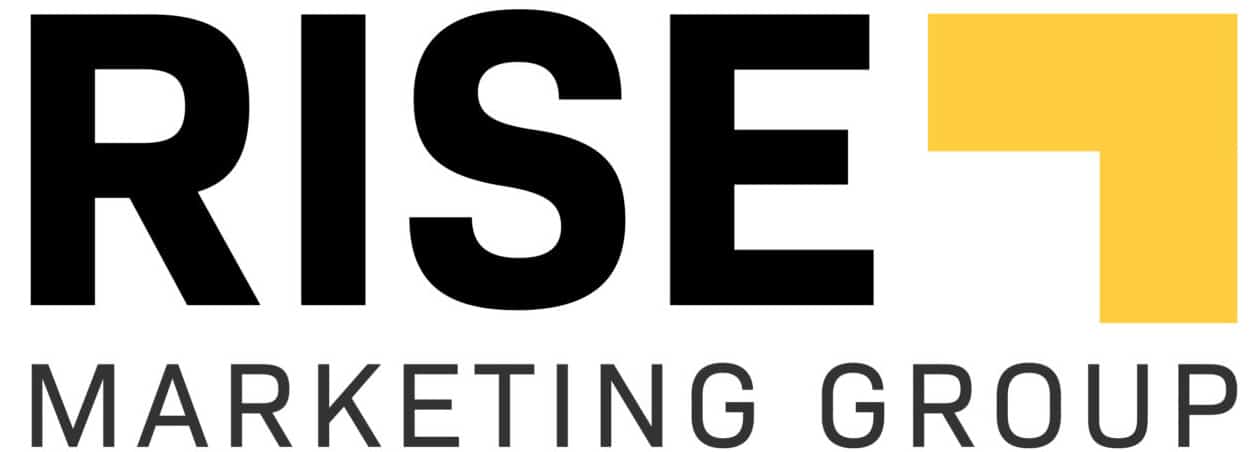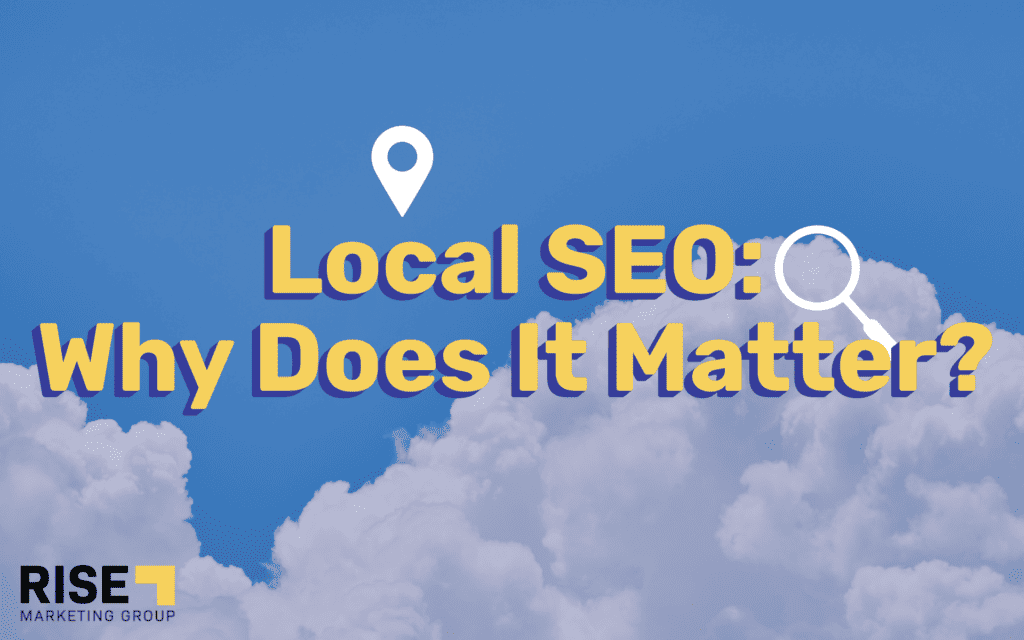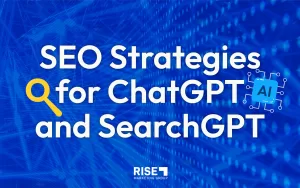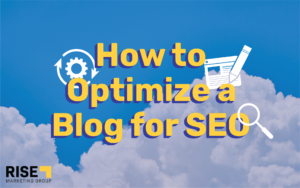Why Local SEO Is Important
To understand how to use a Local SEO strategy for your business, you will first need to understand SEO. Search Engine Optimization (SEO) is the strategy of optimizing your site to rank within search engine results. One way to do this is through Local SEO.
Local SEO is a SEO strategy for optimizing your website’s presence within search results for a given area. For example, if you are a barber or hair stylist in Cambridge, MA, you will want to appear in search results for “best barbershop in Cambridge MA”. This is crucial to finding customers/clients within your business’s area that would be interested in visiting your in-person location.
Targeting SERPs
The best way to know what SERPs show up for your targeted keyword is through a quick search. For Local SEO,
you will want your targeted location included within the search query. For example, a digital marketing agency in Dedham, MA. Common Local SEO SERPs are:
- Local pack results
- Local finder results
- Google business profiles
Setting up a Google Business Profile is a crucial step to targeting Google’s local SERPs. Your Google Business profile provides important information, such as your website link, phone number, address, and business hours.
Aside from general business information, your Google Business Profile can provide information such as photos of your business, services you provide, menu items (for restaurants), and even products. The more information you include in your profile, the more Google has to share within its local search rankings.
Add Image and Video of Your Business
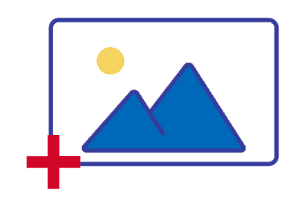
Images you should have of your business include:
- Your storefront
- Interior images
- Product/service/menu images
- Customer review images
Videos you could have of your business include:
- Introductory videos explaining your brand, company, and values
- Walkthrough videos, with descriptions of your business
- Product reviews
- Services breakdown
- Industry information or tutorials that provide credibility and helpful information to your users
The more content you provide users with, the opportunities they have to engage with your business.
Local SEO Link Building
Link building takes time. If you are outsourcing link building, you want to make sure that they understand building out links that target local SEO. Link building for Local SEO uses different strategy than normal link building.
As opposed to mainly targeting websites with high domain authority and traffic, you will want to target websites with a local target audience. State and local directories, as well as local news sites, are great sources to include in your link building strategy.
Technical SEO for Local Strategy
Regardless of whether or not you are strategizing for Local SEO, you will want to optimize for technical SEO. Within Local SEO, there are certain aspects of your site’s technical performance that you will want to optimize:
- Fixing broken links (especially when it’s for local-targeted pages)
- Optimizing metadata
- Fixing load times (especially for the location-specific pages)
- Avoiding duplicate content
- Using redirects as needed
- Revising pages with thin content
- Crawling/indexing local pages
In addition to improving your site’s health, optimizing technical performance can enhance user experience on your site. If users cannot access a local page due to a broken link, you will lose out on a potential lead. If your page does not include enough content, or the content is slow to load, users will not be able to learn about your local offerings enough to want to visit in person.
Integrating Your Website with Google
Integrating your website with Google is the best way to track how well your site is performing within search rankings. For SEO, make sure your site is integrated with GA4 and Google Search Console. You can use tools from Google to track things like core web vitals, user location, and impressions and clicks to your site based on specific search queries.
To set up GA4, you will need to add Google Analytics tracking code to your site after creating a GA4 property. To set up Google Search Console, you will need to verify ownership of your site. You can verify ownership either through DNS verification or other verification methods, such as an HTML file, HTML meta tag, or your GA4 or Google Tag Manager account.
Once these are set up, you can easily share site data with your SEO team or outsourced SEO agency.
Content Marketing for Long Term SEO Growth
Content is king when it comes to your ongoing SEO strategy. Building out more SEO optimized content can have long term benefits for both local SEO and your overall SEO strategy.
For Local SEO, geo landing pages and location-relevant blog content are two examples that provide up to date local information for users searching for businesses within your area. Optimizing your content with area-specific keywords improves your appearance within organic search results for that area over time.
For example, if you target “best towns to live” in your blog, you may appear in search results for anyone looking for driving law information. However, if you target “best towns to live in Massachusetts,” you can appear in search results for people in your surrounding area that may be stronger leads for your real estate agency.
Outside of local SEO, having a continuous content growth strategy can improve your overall organic traffic. By adding more content to your site, you are providing more opportunities to increase the amount of searches you appear in on search engines.
If you are ready to build out a continuous content growth strategy as part of your local SEO efforts, contact our team at Rise to get started!
Local SEO Transcript
The first strategy that I would recommend to anyone and everyone who’s looking to increase their organic traffic for local searches is to add a Google My Business listing. This is, hands down, going to be one of the easiest and fastest way to increase your organic traffic locally. And if you already have it, that’s great, but make sure you have a couple things set up. One, make sure that you have all images so it just looks really good and appealing from a user perspective. Make sure that you fill out all the descriptions and all the content on it. And you can even post updates on Google My Business. I would recommend to do that as well. Just make sure you put as much information as possible. And if Google sees that you’re really taking care of their listing, they will prioritize that over other listings that maybe the business owners just don’t update it, they don’t update their holiday hours, they’re not posting. So make sure that you fill out all that information that’s going to be super valuable and Google’s going to recognize that.
The third area that you should be focused on within Google My business is reviews. You got to have reviews. And reviews is just a voucher of accreditation from your customers. And I would ask all your loyalists, your past customers, customers that had great experiences from you, ask them for a review. It’s pretty commonplace to ask for that. And so, just by building up your reviews, that’s going to be another super helpful asset for your Google My Business. And throughout local SEO, keep maintaining your Google My Business profile that is going to yield significant dividends for your business. So that’s the first strategy, google My Business.
The second strategy, now we’re going to pivot from Google My Business to your website. You have to have valuable content on your website. You can’t just have a landing page that maybe has a paragraph or two, and that’s about it. If you don’t have content, how are you going to rank for relevant searches? How are you going to rank for searches of people asking specific questions about the product or services that you offer?
So I’ll recommend to do is go through your website and continuously build out content. It’s not going to happen overnight, but maybe every month or two have a goal of boosting up content on the website. That could be in the form of making sure you have fully built out service pages, product pages. So when you have product pages, make sure it’s not just the product description that’s canned that might be the same description on all the retailers websites, but maybe your take on it. And it could also be a blog. It may be every month or two, you’re posting some new blog articles that’s relevant to your business, or it could even be having a really robust FAQ section, frequently asked questions. Make sure that you have robust content on your website because, again, without content, how are you going to rank to answer folks questions or just be present for searches when they’re looking for products and services that you may offer. So that’s the second one, content.
Now the third strategy to increase your local SEO is links. Now, anyone who’s been researching marketing, you probably heard about that, about links and links building, you’re probably wondering what that even means. Since inception of Google and since they’ve developed their ranking algorithms, having other websites linked to a website has been a ranking factor for Google. And it’s actually been a very strong ranking factor for Google. And it makes a lot of sense. If you have two sites, let’s say same content but one website, a lot of other websites linked to it and call it out for the work that they do, and the other website does not have any links or other references or mentions out on the internet, Google’s going to prioritize this one. And it makes a lot of sense that other people are vouching for that website. So you need to have links.
Now, that’s not the ranking factor of Google, but it has been a strong ranking factor and continues to be over time. Now, links, you have to make sure that these are coming from legit sources. You don’t want to buy a bunch of links from websites that aren’t contextually relevant. Google’s going to see right past that and say, “This isn’t relevant. You’re actually trying to GAME the system. I might even penalize you.” By links, check your local network. Is there any other businesses that you refer back and forth to each other? Maybe that business has a referral page that they can reference the work that they do, or maybe you could do a case study together. Think within your business network, maybe there are sites that and businesses that just naturally should be linking to you and calling out the great work that you do.
Another great way to build up links are directory listings, so any directory listings. A lot of local communities have business groups that maybe you can get a link on or even just like Yellow Pages or even whatever your niche is, There’s usually directories for that niche. And make sure that you have all your directories listed out and that will help out. The third way that you can get links is maybe doing guest blog posting, which would be having other blogs reference your website where you could even offer to write a blog post. That is time consuming. That wouldn’t be a top priority. I think the top priority for me would be focused on those directory listings and anyone in your business network that could link to you. That would be super helpful.
So just to recap, there’s three strategies, three core strategies, I would recommend and us at Rise Marketing Group to drive a local search engine optimization and local traffic. One, Google My Business. Two, keep that content machine going or create that content machine and keep it going. And then, three, building out those back links. And if anyone wants to read a little bit more on some local SEO strategies, if you’re watching this on YouTube, click in the description or open up the description. And with it, there’s a link to our blog post that gives a little bit more information. And if there’s any business that’s watching this right now, feel free to contact Rise Marketing Group. I’ll have a conversation with you just to see how we can boost your organic traffic locally. Thank you.
